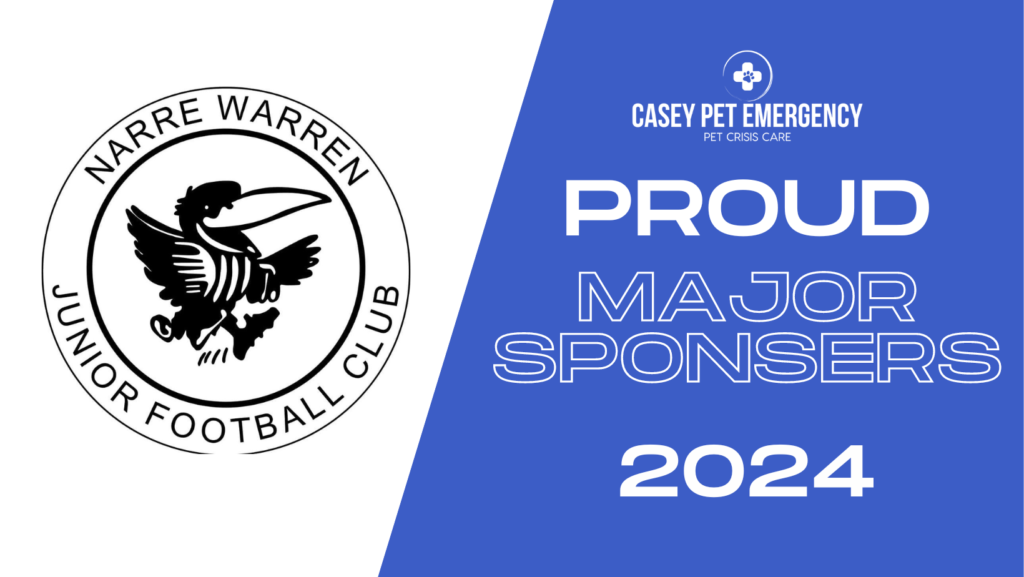Emergency and After Hours
Veterinary Treatment
Services Offered
- In patient hospitalisation and comprehensive monitoring throughout the night by qualified and experienced Veterinarians and Vet nurses and comprehensive multiparameter monitoring equipment + digital whiteboard for patient charting and treatment plans
- Intravenous fluids and fluids plans
- Blood Transfusions
- Oxygen therapy
- Emergency medications including antidotes for poison cases, snake and tick Antevenoms
- Ultrasound
- General Anaesthesia
- Radiology -high quality digital Xray
- Easy Payment Options EFTPOS, Bank transfer, Cash
VETPAY
GAP ONLY insurance payments (Subject to open hours)
Our Mission
Our mission is to provide a high quality after hours, emergency and critical care veterinary clinic for the outer southeastern suburbs. We endeavor to exceed expectations for both clients and their pets whom present in difficult circumstances.
We aim to work closely with surrounding and regional referring veterinary clinics to gain their confidence in our capacity to perform exceptional standard of veterinary medicine, surgery and client and veterinary communication developing a clinic that essentially becomes an extension of our valued general practice referral network.
The intention to save the lives of small animal pets by providing veterinary care at a convenient location to accommodate presentations beyond those of primary care clinic capacity and outside of business hours.
To employ staff whom share our compassionate and dedicated ethos and whom realise the value and important role of pets as part of our families and live. We strive to develop a precedence for exceptional emergency veterinary care and performance of all our staff to benefit pets and their families.
WHAT TO DO IN AN EMERGENCY
10 SIGNS YOU NEED AN EMERGENCY VET SERVICE
Casey Pet Emergency welcomes any enquires regarding a client perception
of their pet being injured or ill.
We are more than happy to help make decision regarding the necessity for emergency care.
Appointments are not required and pets are assessed upon arrival at the centre.
Dog bite wounds, lacerations, falls from height and motor vehicle injuries are common emergency presentations for small animal pets that require prompt and comprehensive assessment for optimal injury resolution. Dogs and cats are vulnerable to blood loss and pain. In addition, internal injuries may not be apparent at the time of an incident and a veterinary check can help to ascertain the extent of an injury.
Coughing, panting excessively, exaggerated breathing movements and noisy breathing are abnormal and warrant emergency care. Short faced (bracycephalic) dog breeds are particularly vulnerable to breathing concerns which are exacerbated by strenuous activity and heat. Oxygen supplementation, cooling, sedation and chest radiographs can help to manage and diagnose breathing problems so that treatment can be commenced.
Significant blood loss can occur and the source may need to be identified and damage repaired (surgical wound closure is commonly required for bleeding wounds and abdominal surgery to remove or resolve an internal bleed. Older dogs are vulnerable to ruptured bleeding tumours of the spleen, kidney and adrenal gland. Sudden bloating, collapse and pale gum colour are often the very first signs of a bleeding tumour.
Vomiting is abnormal for dogs and cats. Vomiting may indicate that there is an inflammatory disease of the gastrointestinal tract which can lead to dehydration and severe electrolyte derangements. Some dogs show signs of vomiting if they have eaten something that causes a blockage of the intestinal tract, constipation, toxin ingestion, dietary indiscretion event or a gastric torsion (bloat). Many causes are correctable if treated and diagnosed in a timely manner.
Common toxins encountered by pets include:
- Chocolate and caffeine containing products
- Grapes and raising
- Lilies – cat specific
- Human medications including Nurofen, Panadol, codeine, cardiac medications, asthma medications
- Party drugs
- Insecticides, herbicides, snail pellets, round up
- Some varieties of mushrooms and compost ingredients may be toxic
- Batteries can be extremely dangerous for dogs to swallow
Pain can present in many ways in our pets. Cats often become quiet, inactive and distressed or aggressive when handled. Squatting and vocalising when attempting to toilet may suggest a painful urinary tract obstruction. Dogs may adapt a prayer posture or hunched back, unsettled or inactive behaviours, atypical aggression, vocalising, crying and lack of appetite are common signs. Brain and neck injuries often result in a dog refusing to bend their neck to get to a food bowl or reluctance to sit or lie down. They may pace or wander in circles to avoid painful movement when trying to cope with a neck injury.
An unconscious animal that does not respond to their name or gentle patting is an emergency. Animals may collapse to the ground if they are weak from a heart problem, internal bleeding, neurological problem or respiratory disease. Immediate veterinary attention is warranted. If a large dog is unable to be lifted, a towel or blanket on the floor can be used to roll them onto and create a sling such that your pet can be bought to a veterinary clinic for emergency care.
Abnormal gait and loss of back leg control or sudden inability to walk can be features of common spinal injuries in dogs or cats including disk disease and trauma. Some toxins and disease processes can also cause weakness most commonly affecting the back legs and potentially affecting a patient’s ability and control of urination. These conditions are always an emergency and require sound veterinary assessment and diagnostic and treatment options.
Seizures in a dog usually involve a period of behaviour change followed by focal and whole body collapse and paddling spasmodic limb movements. A seizure is a serious concern and pets may behave differently or aggressively following a seizure and require careful care to manage in the event of a seizure. Many toxins can result in twitches and tremors that always need veterinary attention and can progress to full seizures and even brain injury, coma and death if not treated.
Hot cars are always dangerous to pets and they should never be left in a hot care for any length of time. Overheating can occur due to airway obstruction (choke) and breathing problems especially laryngeal paralysis. Heat stress complications can include severe bloody diarrhoea, vomiting, dehydration, heart muscle damage, spontaneous bleeding, seizures, brain injury, breathing problems and death. Urgent treatment and immediate vet advice should be sought.
Triage
At Casey Pet Emergency, we do not run by appointment. Patient's are seen according to the most in need of urgent attention first. Client's are encouraged to call before proceeding to the clinic if needing to ascertain if their pet's concern constitutes an emergency and to be provided with an at the time wait estimate. Bearing in mind, the nature of emergency work means that these times can change quickly in some circumstances.
INSURANCE AND PAYMENT OPTIONS
CPE uses cloud based clinic software programs allowing for digital processing of insurance claims from the majority of Australian Pet Insurance Providers. Please supply your pet's insurance policy number for the staff to submit an e-claim (paperless claim process) following their treatment.
CPE also is set up to act for Gap Free Cover during GAP FREE standard processing times.
Payment Plan options are available via:
Payment Plan options are available via:


QUICK CONTACT
Phone/Fax:
03 8790 1625
Email:
caseypetemergencyvet@gmail.com
Our Location:
405 Princes Hwy, Narre Warren

